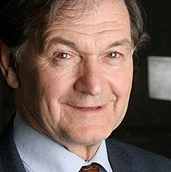In my last post I gave some background on my stint on Mormon Matters and then talked about some of the important players.
When I left Mormon Matters my dear friend, DougG, was the only person that really noticed I had disappeared. He was also the only person that actually asked me to return. When I talked with Doug on the phone (that was when he asked me to come back) this is what I told him.
I said I felt like Mormon Matters played an important role of being a friendly place to ‘let off steam’ for those that didn’t believe in the LDS Church’s defining beliefs any more (sometimes still practicing, sometimes, not) while still allowing them to interact with a certain kind of Mormon that still believed, but was sympathetic to their concerns. This belief-with-sympathies approach really only worked if the believers were willing to not strongly challenge the post Mormons on their new beliefs or on their concerns.
So I had come to wonder if my presence there — where I would directly challenge a former members new beliefs — was disrupting that purpose. Was it possible that I was even causing people to quit by my presence?
We had several post Mormons quit within my short stint due to “too many posts supportive of the LDS Church.” After they quit, John Dehlin quickly utilized his post-Mormon network to find new replacements — and this took all of 30 seconds in most cases. And not a single post Mormon that quit ever said “I quit because I don’t like how Bruce is challenging me too much.” It was generally just the existence of too many “pro Mormon posts” that caused the problem. On at least one occaision, we had a blogger quit because she was upset with how Hawkgrrl had moderated a comment. (If you know how permitting Hawk is with comments, you will laugh at that last statement. You have to be cussing and threatening some GA before she’ll consider cutting the comment. Yet it was true that this angered at least one blogger that then quit.) Continue reading

 A while back
A while back